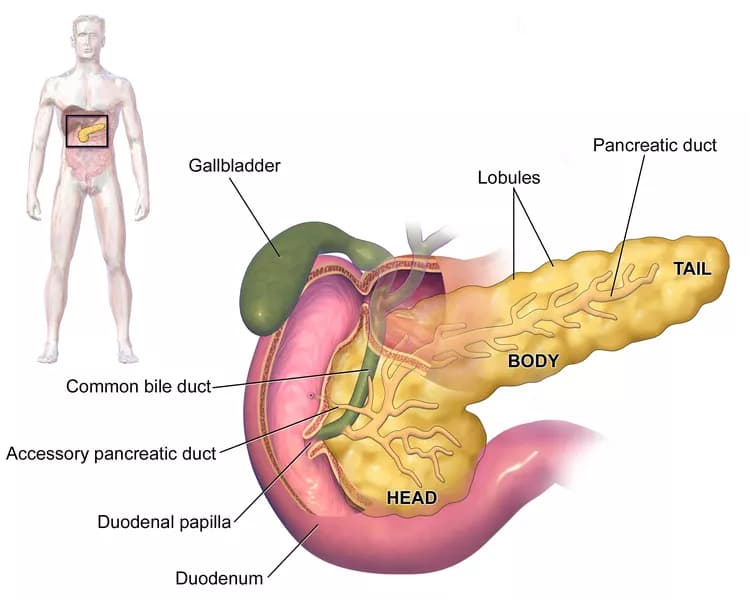
Socioeconomic Factors Associated With Undergoing Surgery For Early-Stage Pancreatic Cancer
While socioeconomic factors such as race, ethnicity, marital status, insurance status, and geographic location are associated with whether patients with localized pancreatic cancer undergo resection (surgical removal of the tumor), only geographic location is associated with survival in these patients, according to a study published online by JAMA Surgery.
Jason S. Gold, M.D., of Harvard Medical School and the VA Boston Healthcare System, and colleagues examined whether socioeconomic factors are associated with disparities in the use of surgical resection in early-stage pancreatic cancer and whether these variables are independently associated with cancer-specific survival in patients selected to undergo resection. The study included patients diagnosed as having early-stage pancreatic cancer January 2004 to December 2011.
A total of 17,530 patients with localized, nonmetastatic pancreatic cancer were identified from the Surveillance, Epidemiology, and End Results database. The resection rate among these patients was 45 percent and did not change over time. The researchers found that patients had an increased likelihood of resection if they were white (vs. African American); non-Hispanic ethnicity (vs. Hispanic); married; had insurance coverage; and lived in the Northeast region (vs. Southeast).
Stage at presentation correlated with sex, race, ethnicity, marital status, and geographic region; however, the factors associated with increased resection correlated with more advanced stage. Patients who underwent resection had improved disease-specific survival compared with those who did not undergo resection (median, 21 vs. 6 months). Disease-specific survival among the patients who underwent surgical resection was independently associated with geographic region, with patients in the Pacific West, Northeast, and Midwest having improved survival in comparison with those in the Southeast.
"Understanding the factors involved in treatment and survival of patients with pancreatic cancer is an essential part of targeting areas for improvement of outcomes with this disease," the authors write.
Commentary: Outcome Disparities in Pancreatic Cancer
"The findings provided by the study by Shapiro and colleagues are critical to improve our understanding of disparities in cancer care," write Daniel A. Anaya, M.D., and Mokenge Malafa, M.D., of the H. Lee Moffitt Cancer Center and Research Institute, Tampa, Fla., in an accompanying commentary.
"Going forward, parallel efforts should be geared to continue improving treatment options and delivery of care for pancreatic cancer--from a public health perspective, however, efforts targeted at improving the delivery of care are likely to have a higher impact in the short term than any other current intervention. Improving regionalization of pancreatic cancer care by increasing access to referral centers and standardizing evidence-based multidisciplinary care at these referring sites should be the focus of future interventions."
The above post is a redistributed news release provided by The JAMA Network Journals. Note: Materials may be edited for content and length.
Disclaimer: DoveMed is not responsible for the adapted accuracy of news releases posted to DoveMed by contributing universities and institutions.
Primary Resource:
Shapiro, M., Chen, Q., Huang, Q., Boosalis, V. A., Yoon, C. H., Saund, M. S., ... & Gold, J. S. (2015). Associations of Socioeconomic Variables With Resection, Stage, and Survival in Patients With Early-Stage Pancreatic Cancer. JAMA surgery.
Anaya, D. A., & Malafa, M. (2015). Outcome Disparities in Pancreatic Cancer: Need for Improved Regionalization of Care. JAMA surgery.
Related Articles
Test Your Knowledge
Asked by users
Related Centers
Related Specialties
Related Physicians
Related Procedures
Related Resources
Join DoveHubs
and connect with fellow professionals

0 Comments
Please log in to post a comment.